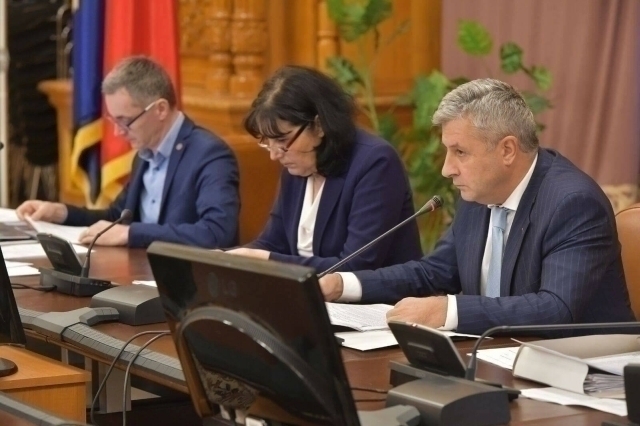The justice laws under parliamentary debate
This week the Parliament of Romania begins debates on the bills through which the ruling coalition tries to change the way the judicial sector works. Meanwhile, the protests against the proposed changes carry on

Florentin Căpitănescu, 04.12.2017, 13:28
Heavily criticised through street protests, opposed by relevant professional associations and by the chiefs of the country’s main judicial institutions, and challenged by the right-wing Opposition, the changes that Romania’s ruling coalition intends to operate in the judiciary will be discussed in Parliament starting this week.
A first draft regulation, concerning the status of judges and prosecutors, is currently on the agenda of the Chamber of Deputies, after having been approved by a special parliamentary committee. The bill stipulates that the head of state may no longer challenge judge and prosecutor appointments, makes prosecutors part of a hierarchy topped by the justice minister, and prohibits magistrates from working as covert intelligent service agents, by having them submit annual statements in this respect. The text also introduces the civil, disciplinary and criminal liability of judges and prosecutors for prospective professional misconduct. Meanwhile, the special parliamentary committee is discussing the other two bills, concerning the organisation of the judiciary and the Higher Council of Magistrates.
The debates follow an unprecedented move on the part of the USA, which voiced concern over the fact that the Parliament of Romania is considering new legislation that might affect the fight against corruption and weaken the independence of the judiciary.
On the other hand, the judicial overhaul planned by the Social Democratic Party and the Alliance of Liberals and Democrats in Romania continues to fuel public outrage. Street protests have grown into a regular weekend activity in several major cities and particularly in the capital Bucharest, and this past week was no exception.
In response, the Social Democrats announced they would organise rallies around the country, against what they call “a parallel, illegitimate state.” Political analysts see this phrase as a less than inspired slogan, suggesting an occult agency that seeks to remove the democratically elected Power, using illegal and immoral means. But, commentators also note, this is not the first time that the Social Democrats have resorted to imaginary enemies or to astonishing distortions of the facts, in an attempt to counter the public protests sparked by the government’s underperformance this past year. The claimed involvement of the Hungarian-born American tycoon George Soros or of multinational corporations in political scheming in Bucharest is just an example of such questionable PR moves.






























